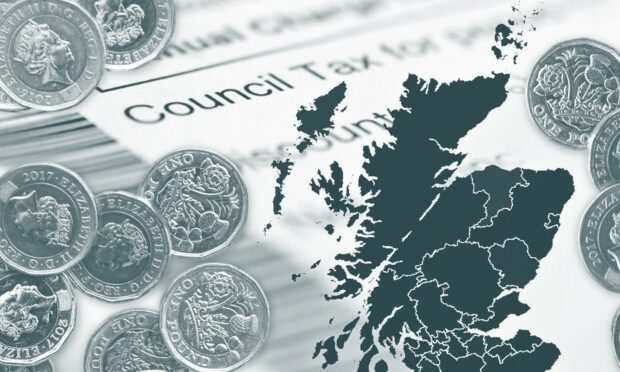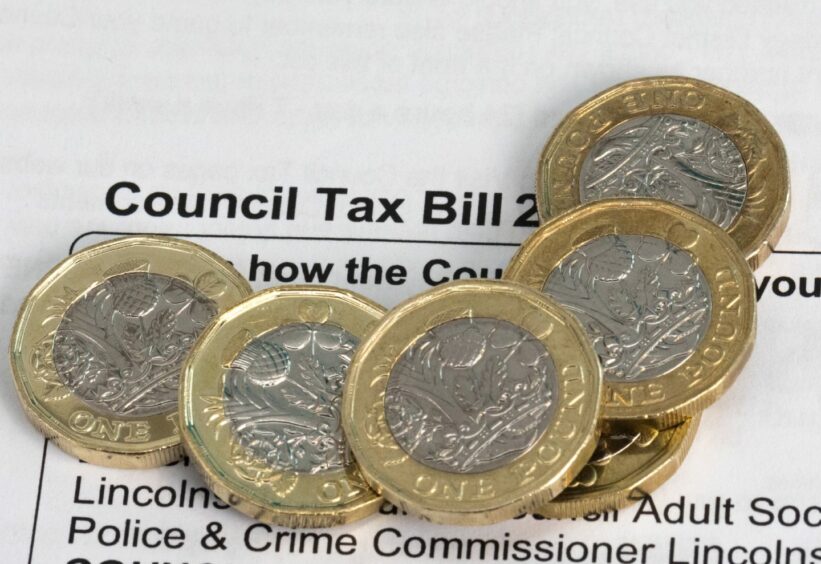Households in Moray and Aberdeenshire are among those getting the biggest bang for their council tax buck, a study of Scottish local authority areas has found.
But it is Angus leading the way, with a final value score (FVS) of 6.86 out of 10 when it comes to delivering value for money.
Angus gets full marks, 10 out of 10, for household waste recycling and also scores highly in the category for road maintenance.
Crime rates were also used in the money.co.uk research, which combined 2021-22 tax rates and overall performance marks for each area to produce the all-telling FSV – how much value for money we get from our councils. All data was obtained in April 2022.
Moray and Aberdeenshire are ranked second and third respectively among Scotland’s 32 council areas, with FVSs of 6.42 and 5.7. Moray does well on road maintenance and household waste recycling measures. Aberdeenshire’s less impressive 4.19 out of 10 for recycling was offset by a 9.35/10 score for road maintenance.
Orkney is the only council area getting a perfect 10 for road maintenance, helping the islands to fifth place overall.
But where there are winners there must also be losers and bottom of the heap is Dumfries and Galloway – Scotland’s worst performing council, according to the study.
Dumfries and Galloway has an FVS of just 1.41. Not only does the study suggest its roads are poorly maintained (0.32/10) but recycling scores a mere 0.97/10 – money.co.uk says this is because less than one-third of the area’s household waste (30.10%) is recycled.
Edinburgh and Argyll & Bute are second and third worst respectively, with FVSs of 1.61 and 2.12. Argyll & Bute’s record on road maintenance – more than 15% of the area’s roads needing repaired – has earned the council zero out of 10 on that measure.
Highland Council is also in the bottom 10, with low performances for road maintenance (1.29/10) and household waste recycling (2.26/10) dragging down the area’s FVS to 2.5.
A middle “division” of Scottish local authorities includes the Shetland Islands, the Western Isles and Aberdeen City, which are ranked 15th, 16th and 21st respectively in terms of how far our council tax goes.
Shetland gets nothing out of 10 for recycling, with more than 80% of household waste on the islands going to landfill. Including other indicators, Shetland has an FVS of 4.1.
The Western Isles is also weak on recycling (1.61/10) and merits an FVS of 4.05 for Scotland’s lowest council taxes. Aberdeen City’s FVS of 3.36 partly reflects a relatively high crime rate – 479 crimes per 10,000 people in 2020-21, earning the Granite City just 1.94 out of 10 on that measure.
James Andrews, finance expert at money.co.uk, offered some guidance on how to check you’re not overpaying your council tax and tips on how to get a reduction.
Mr Andrews said “With council tax bills rising by around 3% in April, it might come as good news for many that 46.1% of tax challenges made last year succeeded in reducing their band.
“As property valuations were roughly done back in 1991, it’s possible your house was misvalued.
“If you think you’re paying too much council tax, you can make a challenge. But bear in mind this is a reassessment process that doesn’t automatically reduce your council tax.”
Here’s how to check if you are eligible for a tax reduction
- Check with your neighbours – compare your council tax band with neighbouring properties of a similar size and style. If your house landed in a higher band, you may have good grounds for appeal. Relevant information could also be obtained online via the Scottish Assessors’ Association.
- Carry out a 1991 valuation check – to find out what your house was worth in 1991 enter your property price at the last valuation into a house price tool such as Nationwide’s Next and compare the result with the council tax bands introduced in 1991. If you find yourself in a higher band than you should be, you could make a request to appeal it.
- See if you are eligible for a council tax discount – if you live alone, for example, or you’re the only adult in the household living with under-18s, you can get 25% off your council tax bill. If you’re a full-time student on a year-long course, or dedicate 21 hours of your time to studying each week, you are exempt from paying. Check your local council’s site to see who else is entitled to discounts.




Conversation